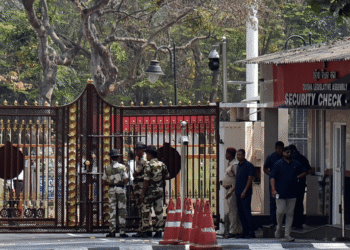Senior leaders of Jamaat-ud-Dawa (JuD), the banned Pakistani terror outfit linked to 26/11 mastermind Hafiz Saeed, have publicly claimed responsibility for orchestrating last year’s mass protests in Bangladesh that led to the ouster of Prime Minister Sheikh Hasina on August 5, 2024.
Saifullah Kasuri, a senior JuD leader, declared during a rally in Rahim Yar Khan, “On May 10, we took revenge for 1971,” referring to the Bangladesh Liberation War. Kasuri linked the protests that unseated Hasina to a symbolic “revenge” against India and the events of 1971 when Pakistan was defeated. Muzammil Hashmi, a UN-designated terrorist, stated in Gujranwala, “We defeated you in Bangladesh last year,” addressing Indian leadership.
Kasuri also confirmed that Indian airstrikes on May 7 (Operation Sindoor) hit Muridke, JuD’s headquarters, killing one of his close associates, Mudassar, who was “cut into pieces.” The funeral, attended by high-ranking Pakistani officials, underlined JuD’s continued clout within parts of the Pakistani establishment.
Student-led protests in mid-2024 escalated nationwide against alleged corruption and authoritarianism.
Facing mounting unrest and under pressure from military officials, Hasina reportedly refused to resign, telling them, “Shoot me and bury me here.”
She ultimately fled to India after being persuaded by her son, paving the way for Muhammad Yunus to take charge of the interim government.
Following Hasina’s departure, Pakistan-Bangladesh relations improved. However, JuD’s provocative speeches now risk reigniting international scrutiny over Islamabad’s alleged tolerance or support for extremist elements.
Former Pakistani diplomat Husain Haqqani remarked, “This kind of rhetoric from jihadi groups makes it impossible for the world to believe Pakistan’s claims of reform.”





























